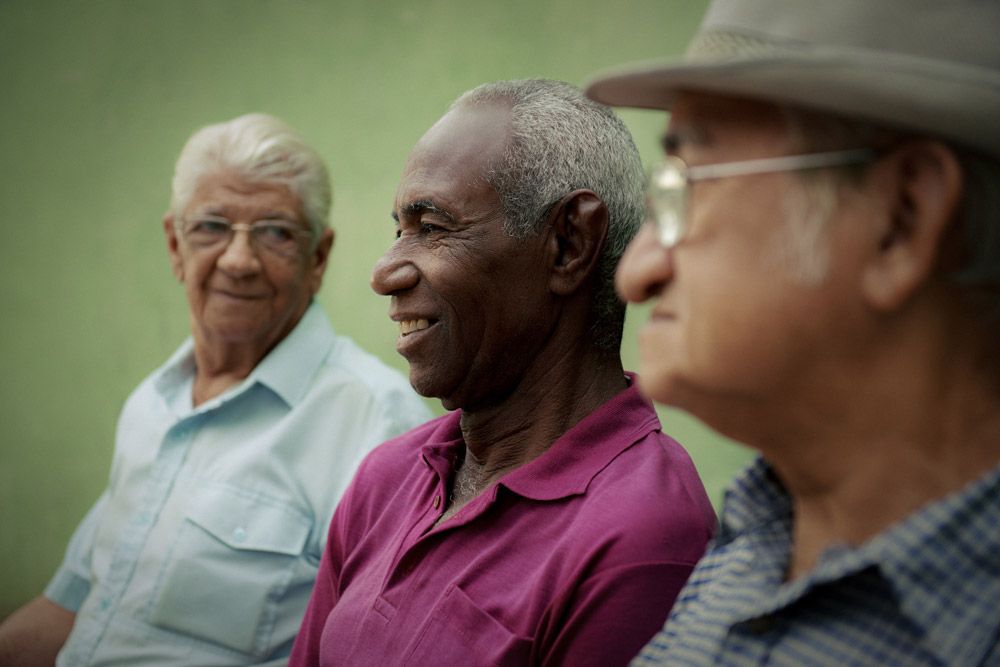Sexual effects of treatments
Sex after chemotherapy: keeping a healthy sex life after prostate cancer

Going through chemotherapy is a rollercoaster ride that can be tough both physically and emotionally. One concern that’s often not openly talked about is chemo’s impact on your sex life. Chemo will affect your body in a number of ways, but it doesn’t mean the end of your sex life or intimacy. Read on for a rundown on how to keep your sex life healthy as you navigate the sexual health impacts of chemo.
Understanding chemotherapy and its effects on sexual health
Chemotherapy is a treatment where strong medicines are used to knock out cancer cells or keep them from growing. This hopefully ensures the cancer doesn't spread. However, it may lead to certain sexual side effects, such as:
Erectile dysfunction (ED) caused by physical and mental factors.
Low sex drive (libido), due to hormonal imbalances and stress.
Fertility issues and trouble fathering a child.
You can find out more about what to expect from chemotherapy here.
Can you have sex while on chemo?
Let’s start with the big question: whether you can have sex while on chemo. The answer is that it depends. So speak to your doctor or healthcare team to find out the specific advice for you. But just because you’re going through chemo doesn’t necessarily mean that your sex life has to suffer. You will, however, have to be aware of a few things and approach everything with open, honest communication.
It’s generally thought that chemo drugs take 48 to 72 hours to leave your body after treatment. But each chemo drug is treated a little differently by the body so check with your healthcare team about your specific chemo treatment.
Can chemo affect my partner?
Some types of chemotherapy can be found in your body fluids, including your saliva and semen. If a partner comes in contact with your body fluids, they could absorb some of the chemo, but we don’t know if this is actually harmful. To minimize any possible risk, use protection like condoms and dental dams during sex, including oral sex. And if your partner can get pregnant, it’s important to take measures to avoid this.
If you’re asking yourself ‘can chemo affect my partner?’, be sure to bring this up with your doctor. Better yet, you and your partner may want to discuss it with your doctor as a team. As with anything to do with relationships, open and honest communication is key. Make sure to have a conversation about the side effects of chemo and the sexual needs of everyone involved.
Remember, penetrative sex isn’t the only way to get or give pleasure. Don't forget to discuss other ways to maintain intimacy and explore other forms of sexual expression, like oral sex and cuddling.
What about oral sex during chemotherapy?
Talk to your doctor about whether it’s safe to have oral sex during chemotherapy.
Doctors generally recommend using a condom or dental dam for oral sex during chemo and for one week afterwards. This is to prevent the possibility of the chemotherapy getting into your partner through your body fluids.
For the person undergoing chemo, there is a risk of infection (such as a yeast infection) due to the chemo making your immune system not work as well as it should. Condoms may help protect against infection while your immune system is weak from chemo.
Can you have unprotected sex after chemotherapy?
There are a few factors to think about when considering unprotected sex after chemotherapy:
How long it has been since the last chemotherapy session.
Ongoing side effects from the chemo and health concerns, such as infections.
Avoiding pregnancy (if this is a possibility for your partner).
To determine when it’s safe to have unprotected sex:
Talk with your healthcare provider for specific guidance.
Monitor yourself for potential side effects and complications.
How long does chemo stay in sperm?
First off, it’s not entirely clear that chemo stays in your sperm. Chemo can, however, damage sperm, including its ability to move and its genetic make-up. Chemo can also lower the production of sperm or stop it altogether. Sperm production can take many years to return to normal and in some cases, it may not return at all.
The risk of losing your fertility is greater with certain types of chemo, higher doses, longer treatment periods, and if you’re older. If having a family is important to you, there are steps you can take such as sperm banking or testicular sperm extraction. Your healthcare provider can provide more information and refer you to a fertility clinic.
What is the emotional impact of chemo on sex and intimacy?
Cancer treatment will bring up many emotions for you and your partner. It’s normal to feel worried, angry, and scared. You may feel a sense of grief and loss about the sexual changes from prostate cancer treatment. These feelings can test even the strongest relationships.
Talk openly and honestly about what’s happening with your partner.
Find ways to be intimate that don’t include sex (like cuddling or massage).
Remember to be gentle and patient with yourself and your partner.
Ask your doctor questions and educate yourself on what to expect.
Seek out support from a peer support group, family and friends, or a sexual health therapist.
To navigate these challenges, it may help to: